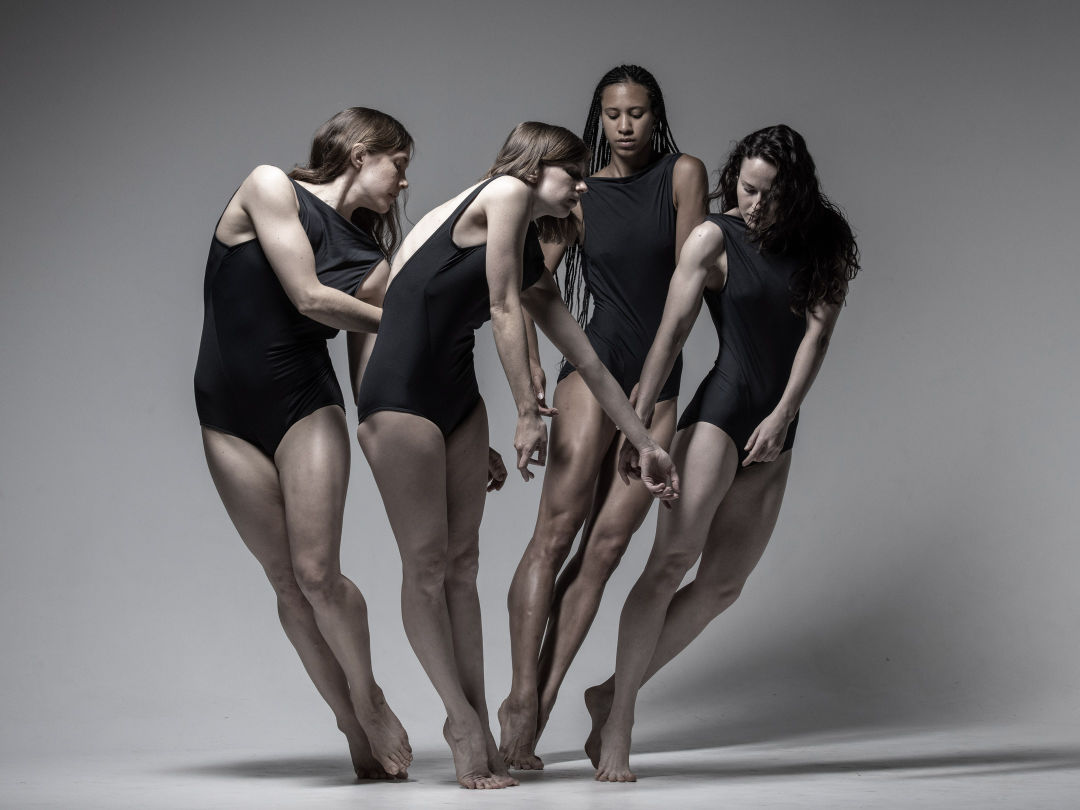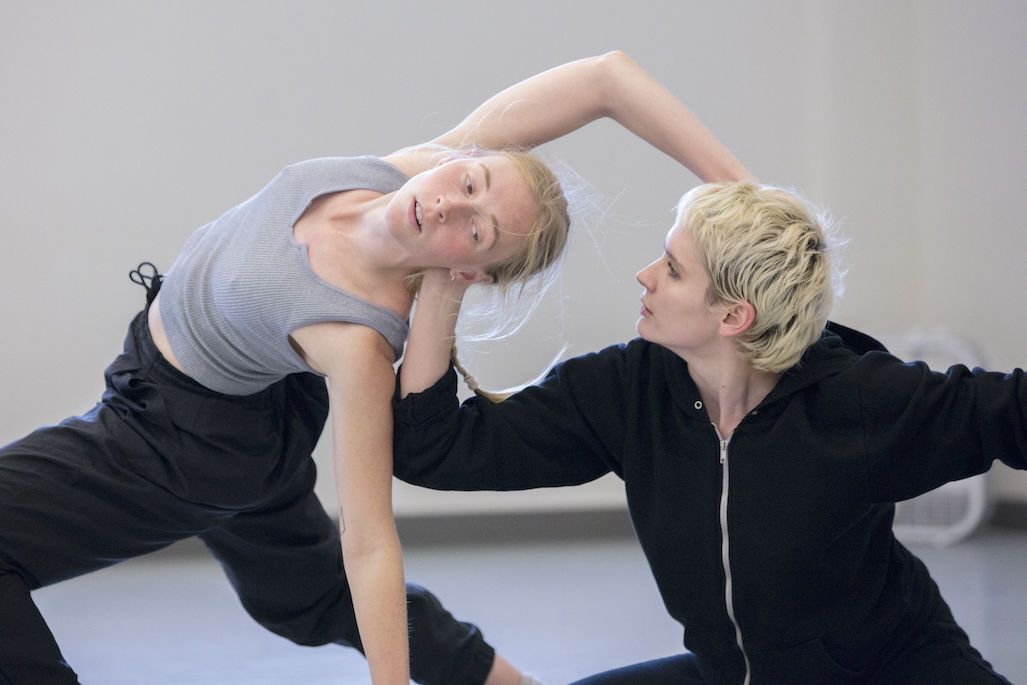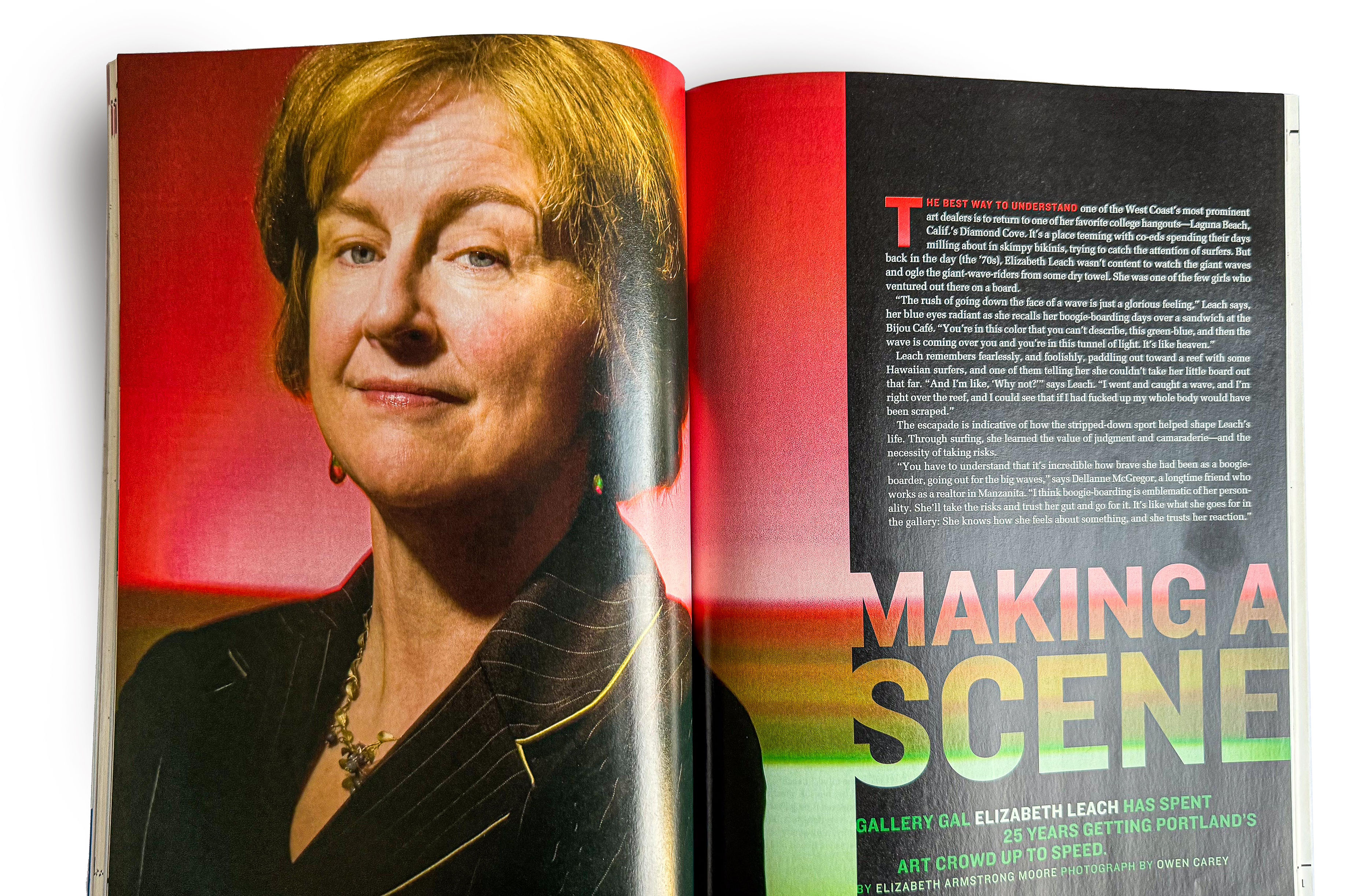This Contemporary Dance Festival Is Ready to Broaden Portland’s Horizons

push/FOLD dancers
What do Portland dancers need? That’s the question that led Samuel Hobbs to create the contemporary dance company push/FOLD in 2016. “There were a lot of artists, my colleagues in Portland, who were being overlooked by institutions that are relatively entrenched here,” they say. What dancers needed, Hobbs found, was “proximity to opportunity, access to resources, access to presentation, commissions, and education.” So they made it happen.
Before long, Hobbs realized they also wanted to connect Portland dance artists with those farther afield. So in 2019, they founded Union PDX, a contemporary dance festival inviting regional, national, and international dancers to present work over four days at Portland’s Hampton Opera Center. The festival—whose fourth iteration runs November 17–20—aims to showcase artists who aren’t already widely established, Hobbs says, “like you would see at a White Bird concert.”
Canadian Rebecca Margolick, who performed at Union PDX last year, was one such artist. “I could tell from the [open call] that it was going to be very well organized, that they were going to have an interesting group of artists. So I just thought, why not? This looks really promising,” she recalls. “And it turned out to be more than that.”
For Margolick, who went on to be named one of Dance Magazine’s 25 dancers to watch last year, Union PDX marked a moment of reemergence after 2020’s pandemic shutdown. The thrill of performance, she says, matched with the festival’s media and promotional materials that helped raise her profile. “Portland was in some way a kickoff towards more and more touring,” she notes, along with a chance to make meaningful connections with other artists.
Last year’s Union PDX lineup included Afro-Cuban, break, and street dance among the offerings. Hobbs says that diversity of styles is intentional. “We’re looking at the existing stratification, the systems that are in place right now which are built around lines of privilege, proximity to opportunity, and Western concert dance, which is ballet and modern,” he says. The lineup for the festival’s fourth year was still TBD at press time, but artists from more than 20 different countries had applied, with dozens of genres and styles represented.
Applications are scored by an anonymous panel of artists, who both perform and conduct master classes in their dance genres. Dancers get paid a stipend, and also are given high-quality photo and video documentation of their work. For Hobbs, the goal is to benefit audiences, educate young dancers, give Portland artists opportunities at home, and show foundations and funders new work outside of the classical genres. Ultimately, says Hobbs, the city benefits. “We need that constant influx of fresh water, to challenge ourselves and to make sure that Portland itself exists within a larger ecosystem,” he says. “Without that fresh water we can’t cross-pollinate.”




